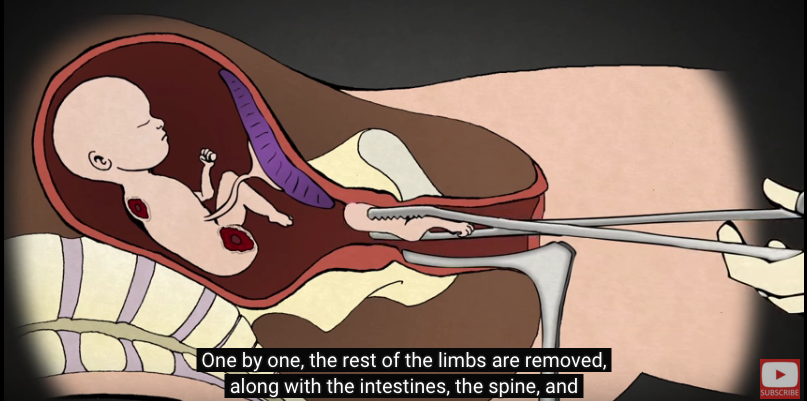On Tuesday, the Fifth Circuit Court of Appeals struck down a Texas law banning D&E abortions. However, the ban had an unusual exception: the dismemberment procedure was outlawed unless “fetal demise” was induced in a more humane manner prior to dismemberment, usually through the injection of a feticide.
The 2-1 majority appellate opinion in Whole Woman’s Health v. Ken Paxton stated that the law, known as Senate Bill 8, “unduly burdens a woman’s constitutionally protected right to obtain a previability abortion” because it “requires a woman to undergo an additional and medically unnecessary procedure to cause fetal demise before she may obtain a dilation and evacuation abortion.”
Texas has banned abortion after 20 weeks with exceptions.
A D&E is often referred to as a “dismemberment abortion” because the abortionist induces death by ripping the legs and arms from a preborn child’s torso and then crushing her skull.
To be clear, the Fifth Circuit Court of Appeals struck down this law because it required an abortionist to inject the preborn child with a feticide to stop her heart before using forceps to grasp and tear off her body parts. Attempting to kill the child in a more humane way was considered by abortionists — and the court — to be an undue burden to women seeking abortion.
Just because a child is not yet considered “viable” does not mean she is incapable of feeling the excruciating pain of having her limbs ripped from her body. A study published in March 2017 found that preborn children have a much more advanced nervous system than previously believed. It was learned that even as early as the first trimester, preborn children already have adult-like nervous system patterns and can likely feel pain as early as eight weeks gestation. Maureen Condic, Ph.D., a former associate professor of Neurobiology and Anatomy at the University of Utah, testified before Congress in April 2017 that “the overall organization of the [embryonic] nervous systems is established by four weeks” and the “neural circuitry responsible for the most primitive response to pain, the spinal reflex, is in place by eight weeks of development.”
Another study published early in 2020 revealed that after 12 weeks, it is highly likely that preborn children are able to feel pain.
The Fifth Circuit Court of Appeals, however, said that it found “little merit in this argument” of fetal pain occurring early in gestation, despite the research supporting it, noting that pro-abortion organizations including the American College of Obstetricians and Gynecologists claim that fetal pain is impossible before 24 weeks.
Louisiana and Mississippi have passed D&E bans similar to the Texas ban, and are also under the jurisdiction of the Fifth Circuit Court of Appeals. However, it remains unclear if Tuesday’s ruling will apply to those laws as well. Unless this ruling is overturned by another appeal, it will stand.
Regardless of whether preborn human beings can feel pain and regardless of gestational age or development, all preborn human beings should be entitled to the right to life, protected in law from the moment of fertilization.
“Like” Live Action News on Facebook for more pro-life news and commentary!







